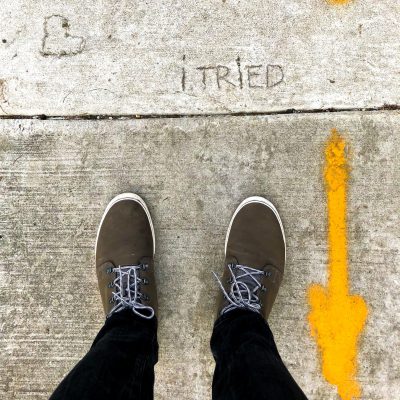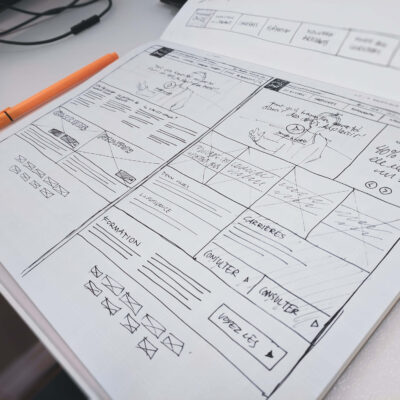In October last year, I attended UX Camp Boorloo | Perth at the State Library of Western Australia. UX Camp is an unconference with no predetermined agenda or speakers. It’s a great community event; this year was the best yet.
Attendees have one minute to pitch their talks on the day. Everyone then votes for their favourite pitches. After that, the organisers choose the speakers for the day from the voting results. A record 42 people pitched their talk ideas in 2022, with 21 selected to present across five streams. The pitch with the most votes becomes the closing keynote.
The opening keynote, Be the Change, from Niall Holder (Digital Director, Anthologie), reminded everyone of our responsibility as designers to do the right thing.
My key takeaway from his talk was how his design values align with mine. They also make a good starting point for all teams that create things:
- Do good work
- Do work good (there is a subtle difference between this and the previous point)
- Learn heaps
- Make a difference
- Have fun
- Work with great people
The best part for me is that everyone lives those values daily in my current role.
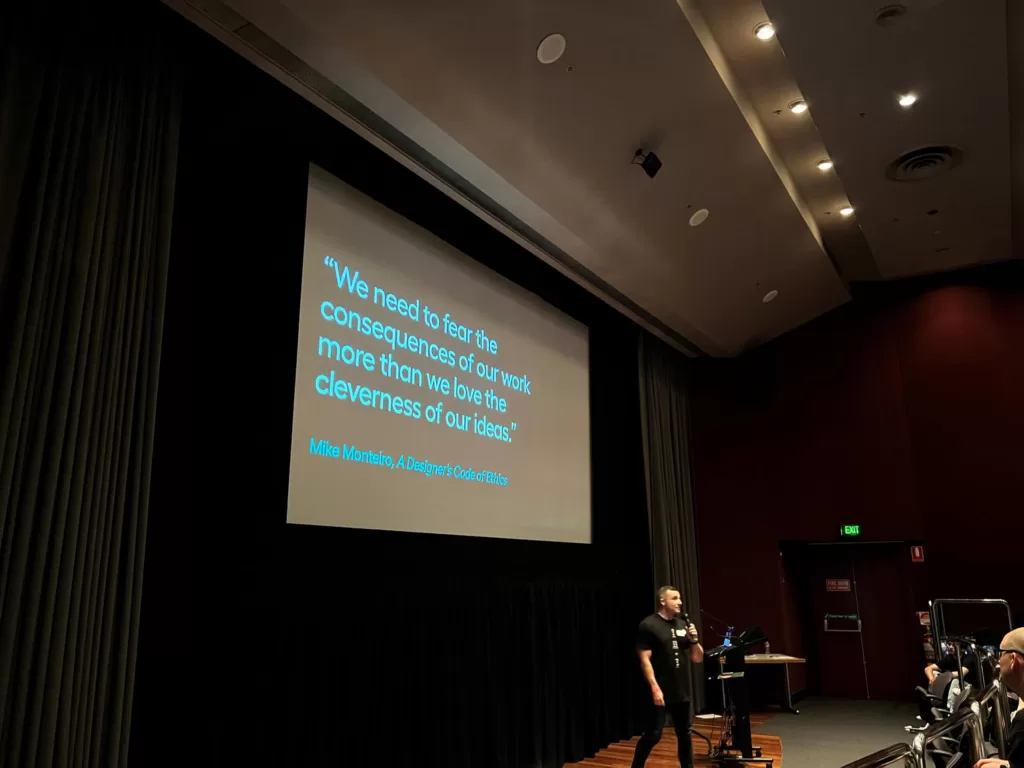
Next was a session titled Incubation – take a break and get some work done. Naomi shared how her journey back from a mental health crisis taught her the value of taking time out to do her best work. She shared her creative process, which allows time to stop, take stock, get away from your desk, and incubate your best ideas. For many people, especially creative problem solvers, ideas and breakthroughs don’t come from being at a desk. Instead, they arrive most randomly – in the shower, driving your car, going for a walk, or cooking a meal. It’s about making space in your brain for the idea to form.
After lunch, we heard from Jethro Sercombe and Pascal Bompard about Learning from high-complexity users. They walked us through their experience researching and developing an app for people experiencing homelessness, their challenges, and how they overcame them. The key is to involve the users in the process through co-design. Take time to listen and know who to speak to and when.
This session gave me food for thought when considering how we design for our vulnerable customers—those experiencing hardship, domestic violence, or disability.
A discussion facilitated by Charlie followed on the subject of Let’s connect to reconnect – the contradiction of human-centred design. Charlie spoke of how we, as a society, have become slaves to our devices. Our attention is constantly drawn to our screens, even when surrounded by natural beauty or loved ones. The discussion focussed on how we, as designers, can provide great experiences for our users without making them addicted (infinite scroll, anyone?). I don’t think we came up with any solutions, but it reminded me always to consider how a design may impact the user beyond the now.
The penultimate session of the day was an entertaining session on the highs and lows of feedback called Figma has feelings from Josh Reid. How to give feedback, why feedback is hard (the short answer is people), and how to receive feedback. The key takeaway is not to take feedback personally and to remember it’s about creating a better solution, not your abilities. Feedback is something we do well in my current role, so it was great to see that validated.
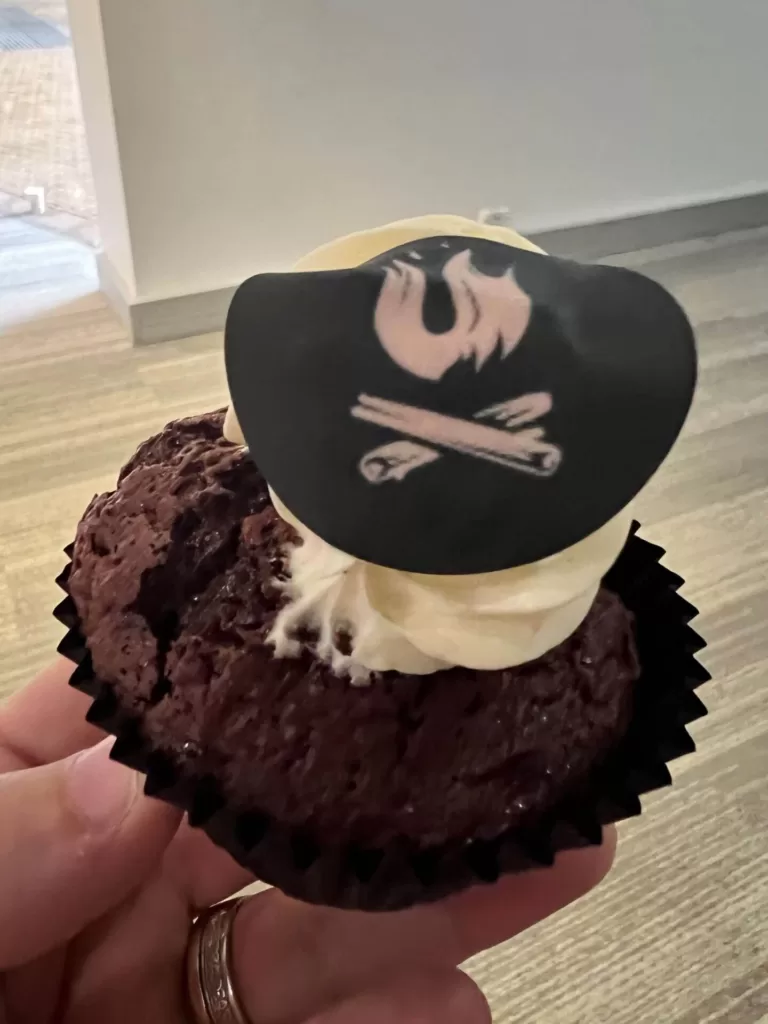
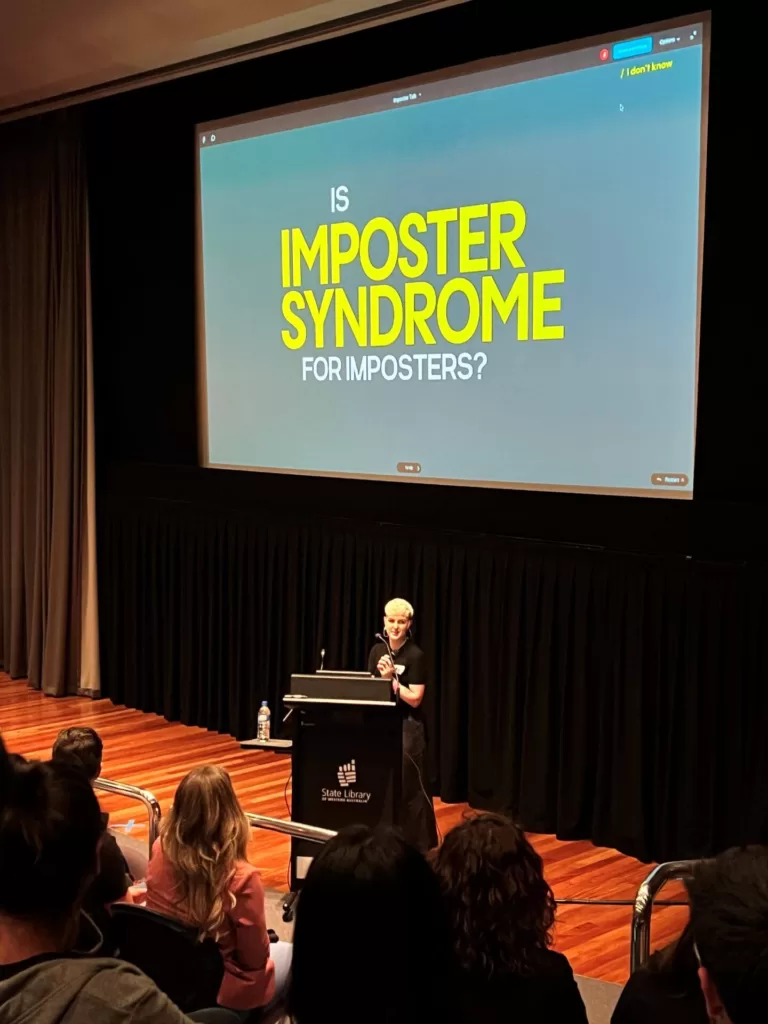
After a short break for delicious cupcakes, it was time for the closing keynote, Is Imposter Syndrome for Imposters? by Jess Witt from Telstra Purple. Having always suffered from imposter syndrome, I couldn’t wait to see what this talk would bring. Jess shared her personal experience of switching careers, which mirrors mine. The feelings of not belonging, not knowing enough, all the usual stuff. She offered ideas for combatting those feelings by adopting a growth mindset, moving from perfectionism to learning and embracing uncertainty. These are all the things I will continue to strive to achieve.
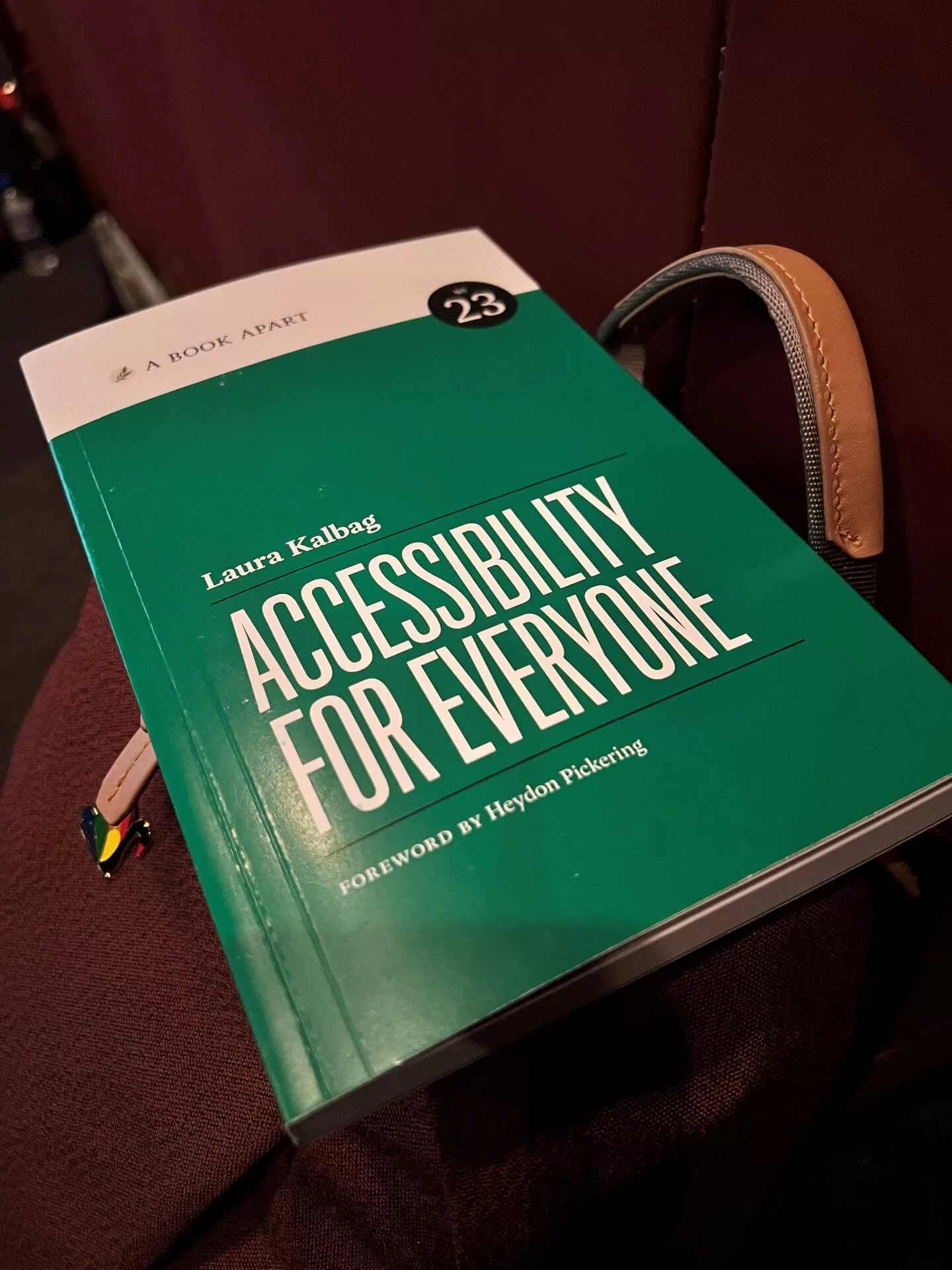
The day concluded with the usual thanks and giveaways. I was lucky enough to have my name called to claim a prize. I chose Accessibility for everyone, an A Book Apart publication by Laura Kalbag—a very appropriate read for my work on accessibility for digital products. Review coming soon!
It was my second time attending the event, and it was great to see how it has gone from just 70 people in its first year to 140 people coming together in 2022 to share their knowledge of UX and design. In addition, I caught up with former colleagues and met new people who share a passion for human-centred design. I look forward to the next one and bringing my colleagues to share the experience.
A selection of talks from the day has been made available on UX Camp Australia’s YouTube channel – go have a watch! You can also connect with UX Camp Australia through these channels:

![WiTWA Tech[+] Conference stage with flowers in the foreground](https://alxthered.com/wp-content/uploads/2021/11/witwa-techplus-conference-stage-400x400.jpg)
